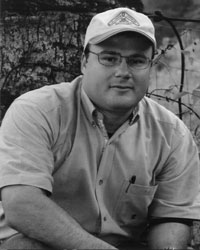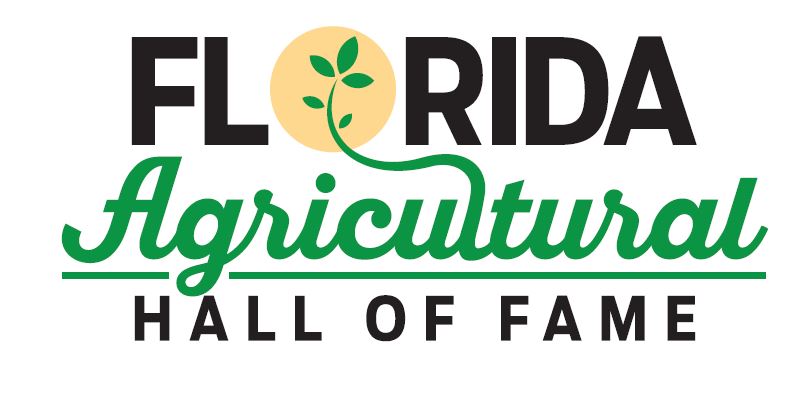
Third-generation citrus grower Mason Smoak accomplished an unbelievable amount in his short 33 years. He managed sprawling cattle ranches and citrus groves and lent his leadership skills to a long list of industry trade associations. He was involved in everything from agriculture education to conservation, and he embraced each new project with energy, optimism, and contagious enthusiasm.
Smoak was born in Avon Park, Florida, in 1974. He was raised in Lake Placid among his family’s citrus groves. Even as a child he was service-oriented and made giving an integral part of his life, but he was also competitive and driven to succeed. He earned a bachelor’s degree in food and resource economics from the University of Florida in 1997. After graduation he returned to Lake Placid to join his family’s citrus and cattle business.
The family’s holdings included over 13,000 acres of cattle ranchland and wildlife habitat in Highlands and Hardee counties and over 3,000 acres of citrus. In just a few years Smoak was helping his cousins manage and expand the business, diversifying into timber and horticulture. Today, Smoak Groves includes 1,250 acres of pine timber in Marion County and 270 acres of caladium bulbs in Hardee County.
Smoak was a natural leader. He was outgoing and hard working. He understood that the world is run by those who show up—and he did more than show up; he got deeply involved. A year after he graduated from college, he was elected to the Highlands County Farm Bureau board of directors. He later served as the organization’s president. He was a Florida Farm Bureau state director and chairman of the Florida Farm Bureau’s Young Farmer and Rancher Program. He was president of Highlands County Citrus Growers, chairman of the Heartland Agriculture Coalition, and a member of Florida Citrus Mutual’s Federal Political Action Committee. He was on the agriculture advisory committee at South Florida Community College and served as secretary of UF’s Alpha Gamma Rho Education Foundation. Smoak was such a respected advocate for the Florida citrus industry that he was invited to testify in front of the U.S. House of Representatives at a public hearing in October 2007 on the labor needs of American agriculture. In January 2008 CNN interviewed him in one of his family’s citrus groves on the issue of immigration reform.
Smoak was a member of the Leadership Highlands County Class of 2001 and graduated from UF’s Wedgworth Leadership Institute for Agriculture and Natural Resources. He was a founding board member of the Highlands County Ag-Venture program, which teaches kids about the importance of agriculture in their daily lives. He was also a hands-on volunteer with Ag-Venture, helping out with everything from fundraising and setup to cooking, teaching, and cleanup.
Smoak was a good steward of the land. He made great strides in water management and worked to establish conservation easements on his family’s ranches in order to protect wildlife. He worked closely with Dr. Dave Maehr, a well-known scientist at Archbold Biological Station, to conduct groundbreaking studies of the black bear population in Highlands County. Dr. Maehr’s research would have been impossible without Smoak’s support. The Smoak family provided Maehr with unlimited access to its large ranch in Venus, which contains prime bear habitat, including flatwoods, bayhead, and scrub. The ranch became the focal location to trap and collar black bears. Smoak also donated his services as a pilot—and his own airplane—so Maehr could conduct aerial surveys of the bears’ population. Smoak’s efforts helped raise the profile of black bears in Highlands County and Florida, revealed the habitats bears rely on, and documented the vast open spaces they need for survival.
Within a decade of finishing his degree, Smoak was chosen to receive the Horizon Award from the College of Agriculture and Life Sciences at UF in honor of his service, leadership, and contributions to agriculture. In 2007 the university named him an Outstanding Young Alumnus. Smoak’s work with the bears caught the attention of the Disney Conservation Fund, which presented him with its prestigious Conservation Hero Award in 2005.
Mason Smoak died on June 20, 2008. He is survived by his wife, Tracee, and three young children, Gabe, Landon, and Ellie.
